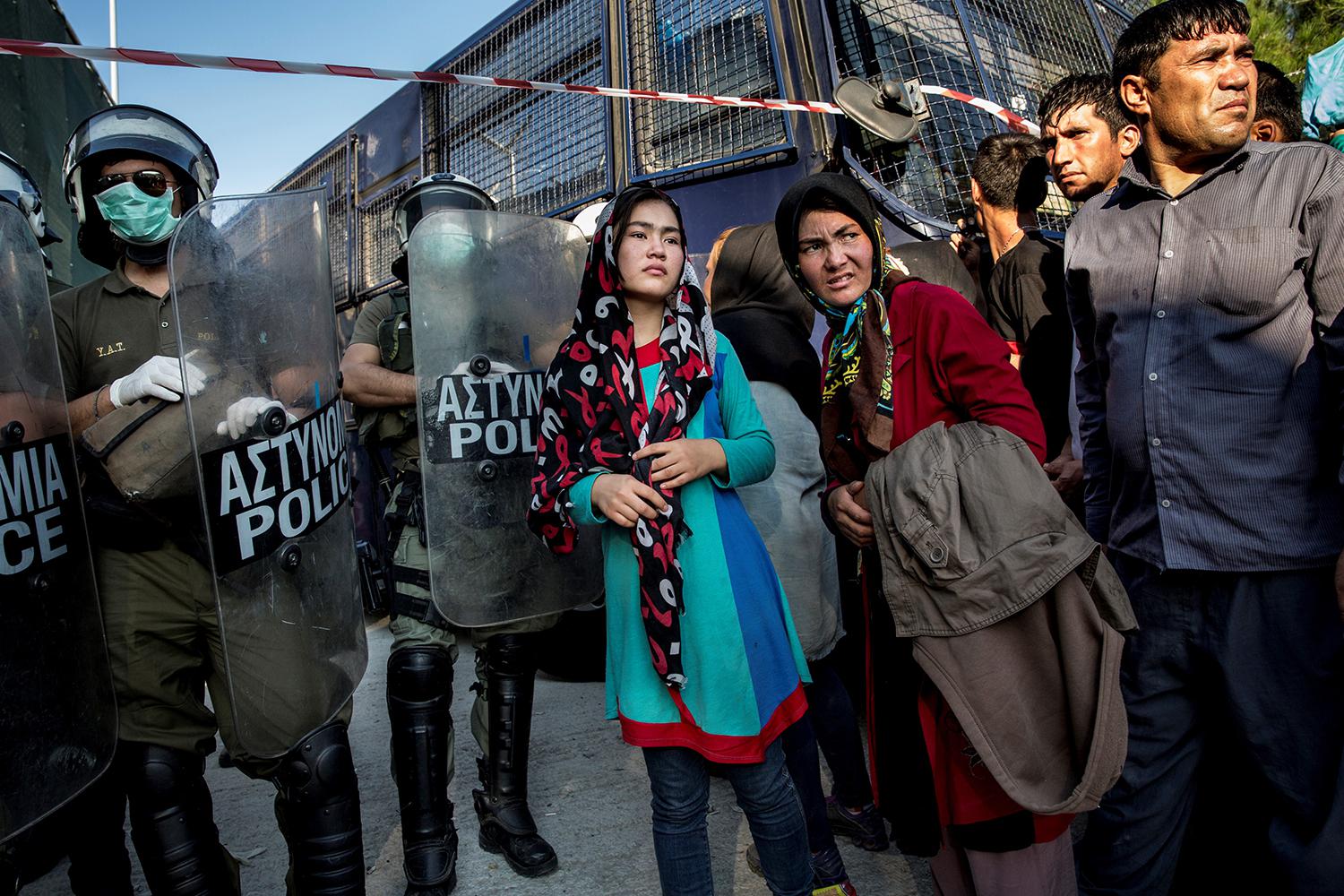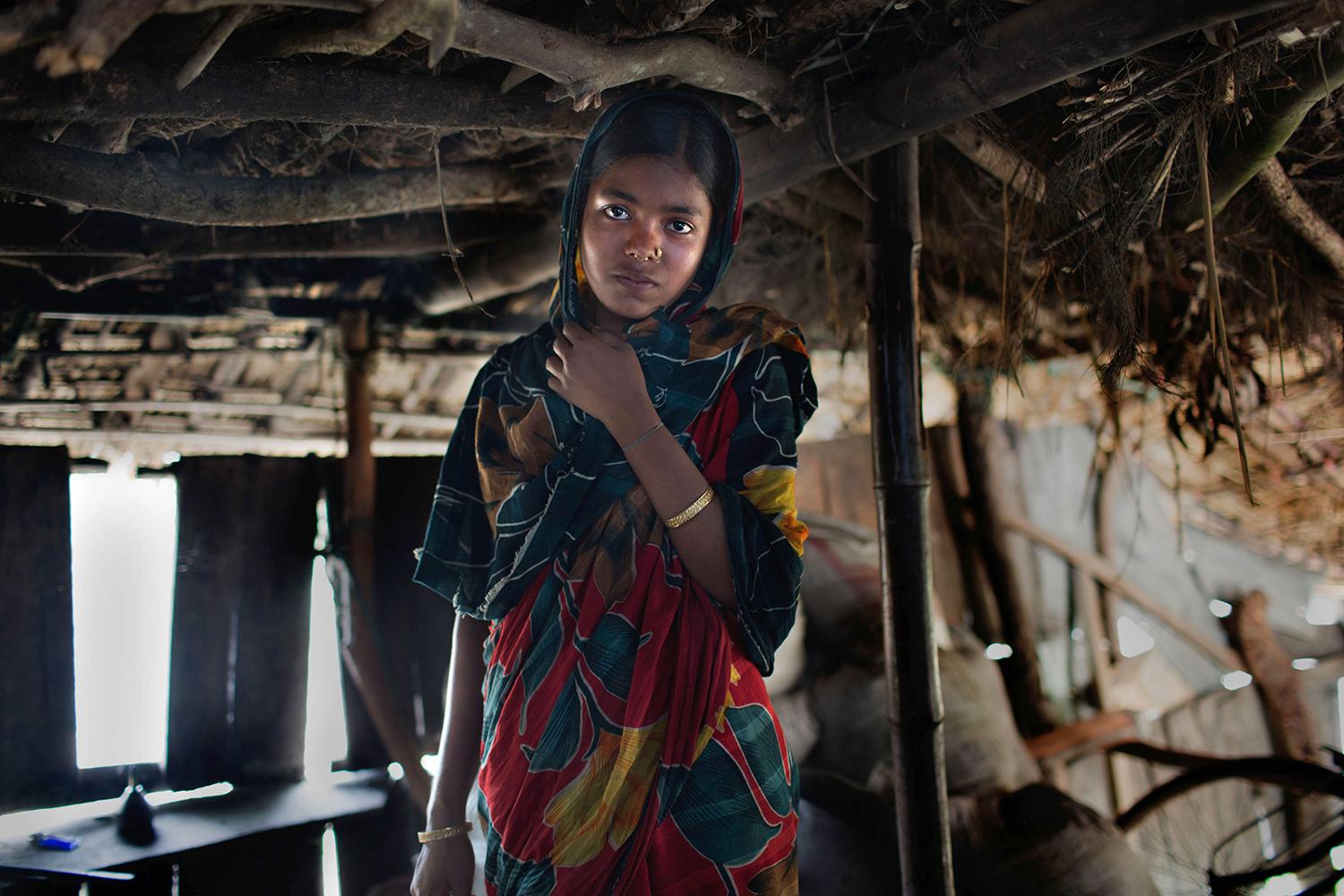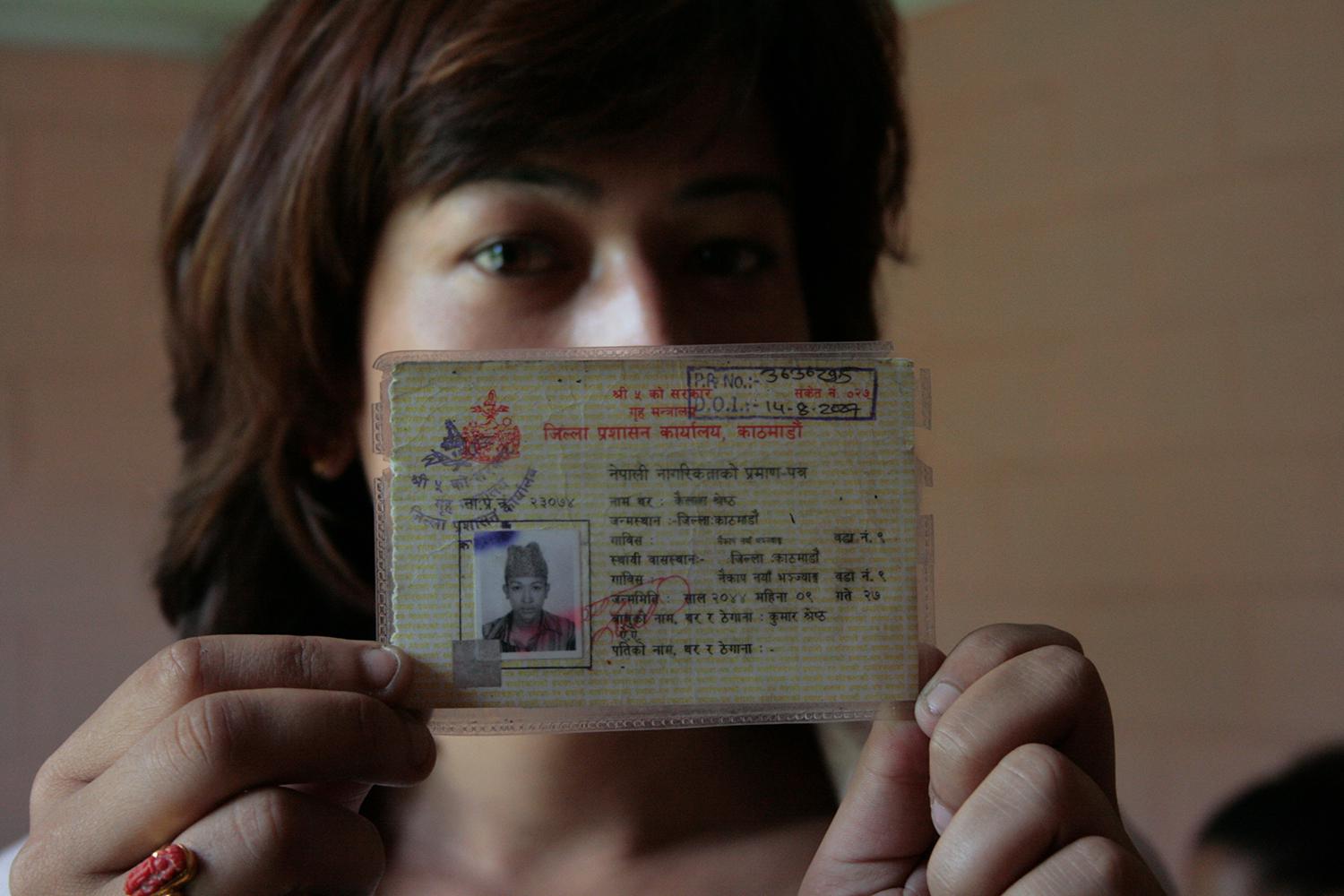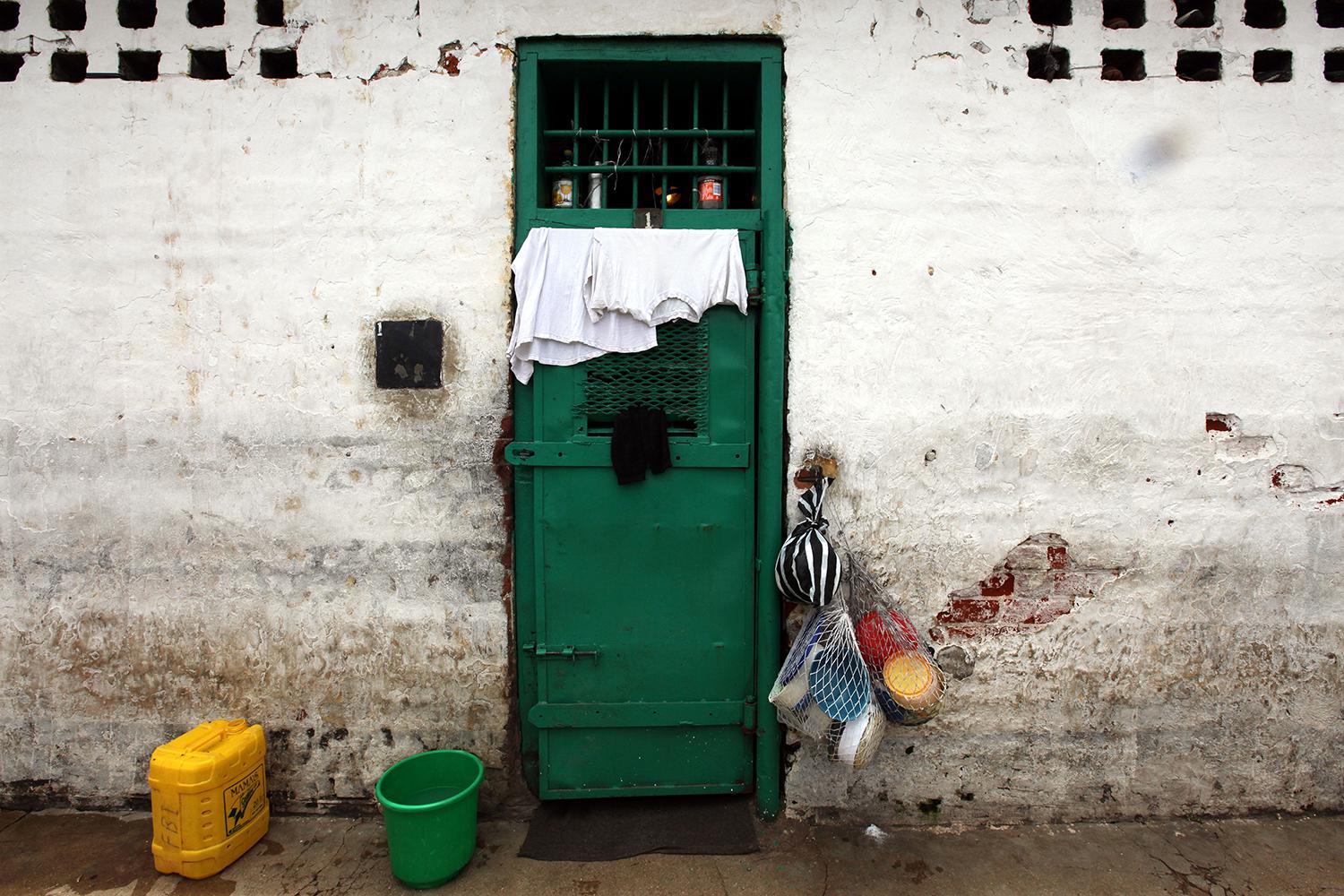Turkmenistan’s atrocious rights record worsened in 2015. The country remains extremely repressive and is virtually closed to independent scrutiny. The government imposes harsh restrictions on media and religious freedoms and exerts total control over access to information. Independent critics face constant threat of government reprisal. Authorities continue to impose informal and arbitrary travel bans on various groups, including students leaving for study abroad, activists, and relatives of exiled dissidents. The government continues to use imprisonment and bans on foreign travel as tools for political retaliation.
For the first time in 12 years, Turkmenistan sent a delegation to the annual Human Dimension Implementation Meeting of the Organization for Security and Co-operation in Europe (OSCE) and continued to expand relations with foreign governments and international organizations in 2015. However, this did not result in any meaningful outcomes for human rights reform.
Cult of Personality
Despite plans for constitutional reform and the establishment of an ombudsman institution, President Gurbanguly Berdymukhamedov and his associates enjoy unlimited power and total control over all aspects of public life in Turkmenistan.
The Turkmen government often forces people to gather for hours for events attended by Berdymukhamedov. They are not permitted to leave or use the toilet. According to the Turkmen Initiative for Human Rights (TIHR), a Vienna-based group, on August 5, many were forced to wait for almost seven hours in the sun in heat of 41 degrees Celsius (105.8 degrees Fahrenheit) to welcome Berdymukhamedov for the opening of a new stadium in Ashgabat. Three of them died the same day.
Civil Society
The repressive atmosphere makes it extremely difficult for independent groups to operate.
Local activists reported the fiercest government pressure against them in recent years. In the lead up to the November visit to Ashgabat by the United States secretary of state, authorities warned local activists to stay home or otherwise face retribution.
Websites tied to the government published smear articles against several human rights defenders in the country and in exile.
Turkmenistan’s first Law on Assemblies came into force in July. It allows for peaceful assemblies if local authorities approve the venue in advance and bans protests near government buildings and other areas. The exceedingly repressive atmosphere makes it unlikely that people can participate in independent, peaceful gatherings without government reprisal.
Freedom of Media and Information
The total absence of media freedom in Turkmenistan remains unchanged. The state controls all print and electronic media, and foreign media outlets often cannot access Turkmenistan. Authorities have repeatedly targeted Radio Azatlyk, the Turkmen service of Radio Free Europe/Radio Liberty (RFE/RL), the only source of Turkmen-language alternative news available in the country.
A court sentenced Saparmamed Nepeskuliev, a freelance correspondent for RFE/RL and Alternative News of Turkmenistan, an exile-run news website, to three years of imprisonment on August 31, although the charges for which he was prosecuted and on which he was convicted are not known even to his family. Police had arrested Nepeskuliev in July for alleged narcotics possession.
In 2015, government pressure eventually forced three other correspondents to cease working for RFE/RL.
Starting in March, authorities have forced residents to dismantle privately owned television satellite dishes, which could also receive Radio Azatlyk, offering to replace them with government-controlled cable packages. Thugs destroyed satellite dishes belonging to many residents who refused to comply.
A new Internet law requires government agencies to maintain websites. However, it also introduces even more thorough government controls on the Internet, such as by banning the transmission of computer data that does not go through official providers.
Internet access in Turkmenistan remains limited and heavily state-controlled. Many websites—including social media and messenger services—are blocked; Internet cafés require visitors to register their personal data, and the government monitors all means of communication.
Freedom of Movement
In September, authorities allowed Geldy Kyarizov, a prominent horse breeding expert who fell out of favor with the government, to leave the country for medical treatment. They had barred him, together with family members, from doing so in December 2014 and August 2015. In October 2015, unknown persons speaking Turkmen assaulted Kyarizov in the Moscow metro, making clear they were retaliating for his family having spoken out about his ordeal in Turkmenistan.
In July, authorities barred Aitzhamal Rejepova and her two children from leaving the country and told her that they are on a list of people permanently banned from foreign travel. Rejepova’s father is an exiled former politician. In August, Turkmenistan’s Supreme Court upheld the migration service’s arbitrary banning of the Ruzimatov family—relatives of an exiled former official—from traveling abroad. The ban has been in effect since 2002. Throughout 2015, as in previous years, migration authorities told Aidogdy Kurbanov, son of an exiled Turkmen businessman, that he was banned from foreign travel.
In May, airport officials barred participants in an exchange program from traveling to the US. In September, authorities barred a number of students from traveling to Kyrgyzstan to commence their studies.
Freedom of Religion
Unregistered congregations and religious groups are banned. Religious literature is subject to compulsory state censorship.
According to Forum 18, an independent religious freedom group, in February a Protestant leader, Narmurad Mominov, was fined 100 manat (US$29) after participating in a family gathering at home and allegedly giving the family a copy of the New Testament. Local authorities forced a person at the gathering to renounce their Christian faith and publicly repent in a mosque.
In February, security police beat three of four Jehovah's Witnesses they arrested. A court found all four guilty on trumped-up hooliganism charges and sentenced three to 15 days in jail, and one to a 100-manat fine.
Also in February, prison guards of Seydi labor camp severely beat five Muslim prisoners serving sentences for so-called religious extremism offenses.
In May, a court sentenced Bahram Hemdemov, a Jehovah's Witness, to a four-year prison term for allegedly inciting religious hatred. According to Forum 18, security personnel beat Hemdemov in pretrial detention.
Political Prisoners, Enforced Disappearances, and Torture
Many people continue to languish in Turkmen prisons on what appear to be politically motivated charges.
Political dissident Gulgeldy Annaniazov, arrested in 2008, remains imprisoned following a conviction on charges that are not known even to his family. He is serving an 11-year sentence.
Several dozen people, many of whom were imprisoned under former President Niyazov, remain victims of enforced disappearance—including former Foreign Minister Boris Shikhmuradov, his brother Konstantin, and a former ambassador, Batyr Berdiev. For more than a decade, the government has refused to allow them any contact with their families and their fates remain unknown. In 2014, the United Nations Human Rights Committee recognized Boris Shikhmuradov as a victim of enforced disappearance and stated that the Turkmen government must release him. At time of writing, the Turkmen government had not replied to the committee, missing the one-year deadline to do so.
Torture remains a grave problem, particularly in high-security facilities. The government has persistently denied independent human rights monitors access to the country, including international nongovernmental organizations and 10 UN special procedures.
Sexual Orientation and Gender Identity
Homosexual conduct is punishable by a maximum two-year prison sentence. Criminalization and social prejudice create widespread homophobia, and medical institutions and judicial authorities often regard homosexuality as a disease. Gay men, lesbians, and transgender people have to hide their sexual identity, fearing persecution, harassment, and discrimination.
Key International Actors
Several international actors continue to seek to leverage Turkmenistan’s energy wealth, sidelining concerns about the government’s human rights record.
In June, on the occasion of the annual human rights dialogue before the European Union and Turkmenistan, the EU raised a wide range of concerns, including enforced disappearances, the forced dismantling of satellite dishes, and forced evictions.
However, the upgrading of relations between the EU and Turkmenistan, in the form of a Partnership and Cooperation Agreement (PCA), remained pending, with the European Parliament postponing the agreement’s final ratification on technical grounds. None of the EU’s institutions or member states have made any known efforts to secure concrete rights improvements as a condition for its conclusion.
In June, at the 29th session of the UN Human Rights Council, the EU expressed concern about restrictions on civic freedoms, reports of torture, and the use of incommunicado detention in Turkmenistan, and urged authorities to engage with UN treaty bodies. The US expressed similar concerns.
In its March concluding observations, the UN Committee on the Rights of the Child expressed concern about restrictions on media and civil society organizations and “the continued practice of mass mobilization of school children and students for various festive events….” The Committee urged Turkmenistan to ratify the International Convention for the Protection of All Persons from Enforced Disappearance and the Optional Protocol to the Convention against Torture and other Cruel, Inhuman or Degrading Treatment or Punishment.
During his June visit to Turkmenistan, UN Secretary-General Ban Ki-moon delivered a forceful speech in which he made a strong case for respect for human rights and the rule of law as essential to development. Marking concern about a deterioration in rights, he stressed, with respect to the government's creation of an ombudsman post, that the institution needs to meet internationally agreed standards.
The World Bank and Turkmenistan continued discussions of a new strategy of partnership for fiscal year 2016-2017. The bank said that it held discussions with civil society leaders as part of this process, although it is unclear how it was able to do so given the severe repression in Turkmenistan.




